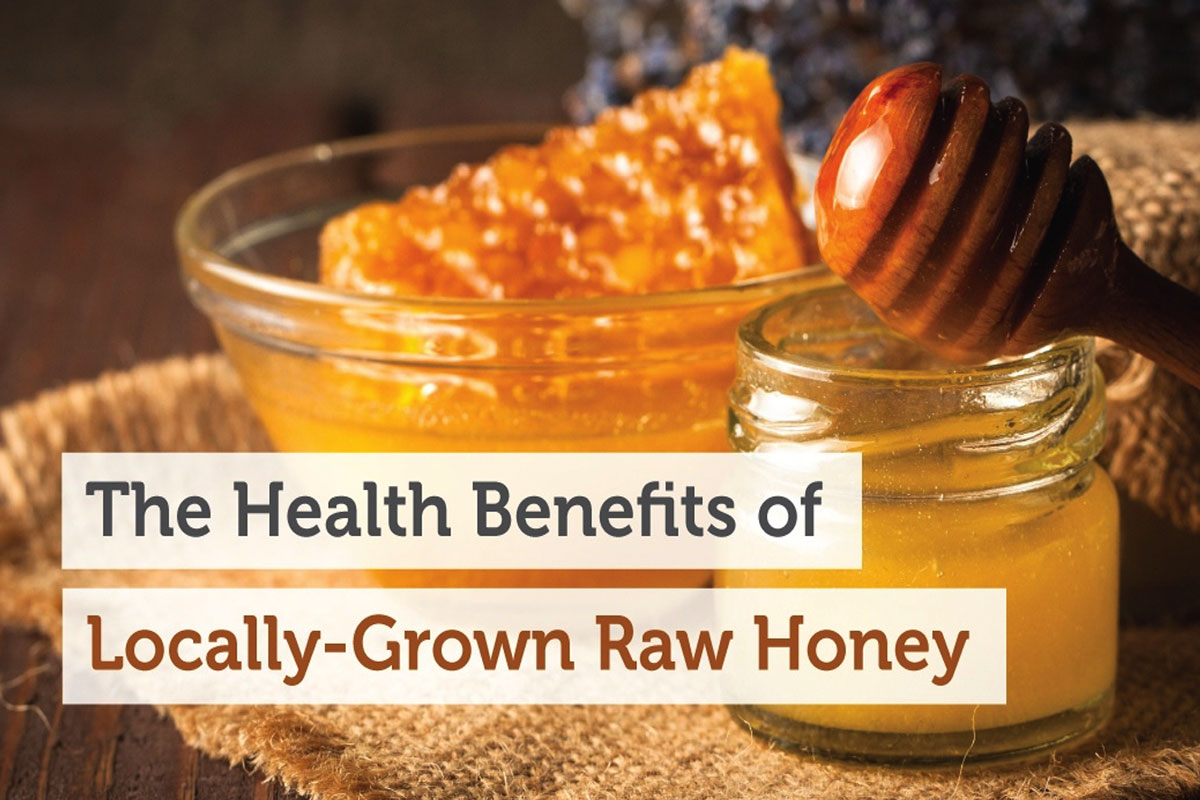Raw Honey seems to be all the rage lately in health food stores, in health food products and everything we see from ads, to the news, commercials and even friends and family touting this amazing superfood. But at the end of the day, it’s still just sugar… Right?
Not exactly. While honey is definitely a sugar, there are many benefits to eating raw local honey and the benefits don’t just stop at nutrition. Many have come to call raw honey and other bee-created substances superfoods. This article will simply discuss raw honey, more commonly known as “liquid gold”.
Raw Honey – The REAL Thing
Its first and foremost most important that you understand, not all honey is made alike. In fact, if you shop in a large grocery store chain in a big city like New York, or even the suburbs, you’ve likely only encountered the heavily commercialized version of honey. What you need to find is raw honey – honey in its purest form. It has not been filtered, strained or heated above 115ºF. Many commercial varieties we find packed tightly onto our conventional grocery store shelves have been so processed that many (if not all) of the beneficial enzymes, nutrients and antioxidants have been completely destroyed. Commercial honey producers have done years of market and consumer research and found people make less complains when their honey is consistently the same color, flavor, texture, smell and consistency each time. To ensure that consistency commercial producers process the raw honey by heating and filtering it, destroying the parts that are best for our body, leaving us only with just another sugary substance.
Key Nutrients
Honey is loaded with many essential vitamins and minerals. Vitamins such as B1, B2, B3, B5, B6 as well as vitamin C are found in honey. It also contains minerals like magnesium, potassium, calcium, sodium chlorine, calcium, copper, iron, manganese, sulphur, zinc and phosphate.
Energy Boost: Carbohydrates, in the form of glucose and fructose provide the human body and brain with the energy which may boost endurance, and reduce muscle fatigue. Many athletes use this superfood for instant as well as a sustained-energy source to keep them going during their training. In sports and endurance, honey may provide 17g of carbohydrates per tablespoon, and can be an inexpensive alternative to commercial sports gels, not to mention its… natural!
Excellent Source of Antioxidants: Honey not only has a full array of minerals and vitamins, but it also includes the flavonoid pinocembrin that’s unique to honey. Pinostrobin supports and promotes action.
Supports Good Bacteria: Honey contains Bifidobacteria – present in the gastrointestinal tract – that is essential for effective digestion and good health. Honey includes probiotics and prebiotics that assist the growth and action of Bifidobacteria because it’s alkaline-forming food, and is comparable to ingredients contained in fruits. It does not ferment in the stomach and it can also be used to counteract stomach upset.
Antibacterial and Anti-fungal Properties: Based on these properties honey has been used to cure allergies by boosting a powerful immune system, as it also contains strong anti-inflammatory and anti-fungal properties which makes it an excellent choice to even treat wounds if you find yourself outdoors, away from medical help. It has antibacterial properties due to its character and produced hydrogen peroxide. Constant use of honey strengthens the white blood corpuscles to fight bacterial and viral diseases.
Slows the Aging Process: Part of this aging process is related to the slow depletion of enzymes within the body. Raw honey is one of the very few foods to help slow the depletion of enzymes through the intake of amylase. Amylase is the enzyme that breaks down sugars and carbohydrates. It may restore damaged skin to give a younger look.
History: Raw Honey Goes Way Back!
Used for nearly 2500 years, this substance contains many important nutritional components for our body and mind. In order to reap the benefits of honey, we must only consume honey that is raw or unpasteurized. Honey is becoming increasingly recognized not for its amazing taste, but rather its medicinal properties. Its application dates back many years; used in many of the traditional medicines of the world, including Ayurveda. Today, honey is slowly being integrated into modern medicine as science studies are beginning to see that honey is an excellent topical application for healing wounds. Honey is valued and loved worldwide not only because of its taste, but because of the health benefits it provides us. Lets delve deeper into the amazing health benefits honey has to offer.
Raw Honey: Superfood & Functional-Food For Dogs!
Raw honey: Honey is made up of simple sugars—mostly glucose and fructose that add to a range of health concerns, from obesity to diabetes [29]. Raw honey is preferred in dogs because it has super food health benefits [30]. This is because it has not been heat treated (pasteurized) or processed and has retained its original nutritional qualities [31]. It is typically thick and milky in appearance. Pasteurization destroys honey’s beneficial properties, leaving behind a sugary, high-glycemic sweetener [29]. Feeding raw honey to dogs has such benefits including alkaline-forming, high in antioxidants, containing natural enzymes and nutrients, powerful antibacterial and antimicrobial properties, helps heal ulcers, helps manage diarrhea, and aids indigestion [32].
Raw honey is also helpful in treating topical wounds, including sunburns and mild burns. This is due to the chemical reaction that occurs between glucose in the honey and an enzyme added by honeybees called glucose oxidase. When the honey comes in contact with the skin, glucose oxidase breaks down the glucose into hydrogen peroxide, which is antibacterial. Pasteurized honey, however, is not beneficial for wound treatment [29]. Also consumption of locally grown raw honey helps to prevent seasonal pollen allergies because locally grown raw honey has local pollen spores taken up by the bees, hence consumption leads to gradual production of immunity to the pollen [33, 34].
Manuka honey has been known as the most useful of all honeys. In clinical trials, Manuka honey has helped to destroy bacteria such as methicillin-resistant Staphylococcus aureus, methicillin-sensitive S.aureus, vancomycin-resistant enterococci, and Helicobacter pylori [31]. Raw honey should be fed in moderate amount to dogs, a teaspoon per day for small dogs and a tablespoon per day for large dogs. Care should be taken especially in diabetic or overweight dogs. Puppies should not eat raw honey, as it can potentially be contaminated with a botulism-related toxin which their immature immune systems are unable to defend [29].
For More Information on Superfoods & Dogs visit: Benefits of Super Food and Functional Food for Companion Animals
Support your body, your health, your families health, local businesses and the environment and try adding Local Raw Honey to your diet. It’s the type of food that is as good for you as it is good for the environment!





